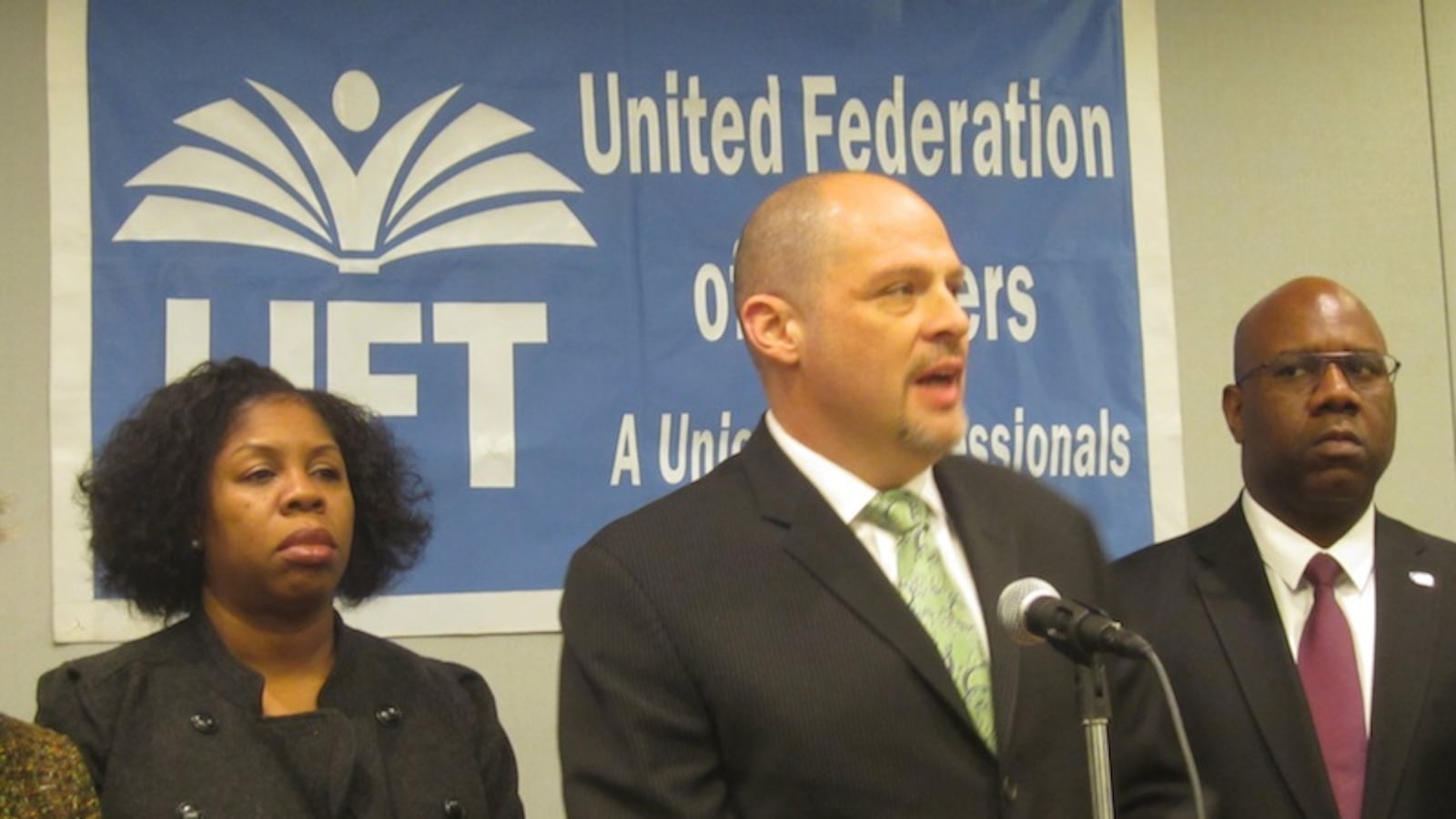The city teachers union has successfully argued that teachers alone get to decide what to put in their lesson plans, prevailing over the city just weeks after negotiating a new contract that both parties hailed as a victory.
An arbitrator ruled this month that principals may occasionally collect teachers’ lesson plans but may not dictate what to include in them, settling a prolonged city-union debate that took on new urgency as the city has ramped up its evaluation systems for schools and teachers.
Over the course of a yearlong arbitration initiated by the United Federation of Teachers, union officials argued that the city violated a long-standing contract agreement by allowing principals to tell teachers what to put in their lesson plans and by collecting them routinely. They said that practice has become more common since the advent of new school and teacher rating systems that factor in teacher planning.
The arbitrator, Deborah Gaines, sided with the union in ruling that teachers have authority over the content of their lesson plans. But she did not bar administrators from ever collecting the lesson plans, as the union had requested.
Judith Glazer, a math teacher at I.S. 125 in Queens, celebrated the ruling as a check on “micromanaging” principals who disregard teachers’ expertise and the contract rules.
“This is a huge victory,” she said. “It reaffirms our right to teach the way we see is best for our students.”
While principals can’t specify the content of teachers’ lesson plans, they can still tell them to include certain elements in the lessons themselves, such as warm-up activities or daily assessments. They can also give specific directions to teachers who have received poor ratings. And they can still collect and check any teacher’s plans from time to time.
“We’re pleased that the arbitrator agreed with our view that supervisors should be allowed to collect and review their teachers’ lesson plans to ensure that they are rigorous and prepare our students for success,” said department spokeswoman Devora Kaye.
In the past, it was common for principals to demand that teachers complete their lesson plans a certain way and turn them in each week. But in 1990, the union and the schools chancellor agreed to a new contract provision that only let principals collect the plans on occasion. It also prohibited school leaders from mandating a “particular format or organization” for the plans.
Periodically, teachers have complained to the union about principals overstepping the bounds of the agreement. Recently, for instance, one middle school required each lesson plan to include 13 questions, while another school had teachers type their plans into an online programs with built-in lesson components, according to the arbitrator’s written summary of the hearings. Other schools distributed lesson plan templates or created posters of model plans, union officials testified.
While such complaints have cropped up before, the union said they surged after 2006 when the Bloomberg administration instituted “Quality Reviews,” where evaluators observe a school for a few days before rating it. The union said that evaluators often collect teachers’ lesson plans and sometimes cite them in their reviews. That has prompted some principals to issue new guidelines to teachers, according to some teachers who testified at the hearings.
Others said the new teacher evaluations contributed to the problem. Certain principals rolled out new lesson plan requirements based on the rubric by which teachers are now rated, some union witnesses said. Glazer, the I.S. 125 teacher, said her school’s support network advised principals to use the rubric to evaluate teachers’ lesson plans.
Ellen Gallin Procida, the UFT’s director of arbitration, said school administrators should focus on evaluating teachers’ lessons, not their lesson plans, which are meant for the teachers themselves.
“If I know what I have to teach, you can tell me the style and methodology,” she said, “but I’m the person getting up there and these notes have to be helpful to guide me.”
The education department pushed back against that argument, insisting that lesson plans offer administrators a useful map of teachers’ thinking. They also make it clear whether a teacher achieved her goals in a lesson, the city said. More to the point, the union has long accepted the fact that many principals ask teachers to include certain elements in their lesson plans, such as the lesson’s objective or necessary materials, city witnesses said.
One witness for the union, a former department official who handled teacher grievances, described an extreme consequence of granting teachers complete control over their lesson plans: One teacher successfully challenged a disciplinary letter he received for submitting his lesson plans on the back of a matchbook.
Mark Cannizzaro, executive vice president of the principals union, said that, for better or worse, the ruling simply highlighted the part of the teachers contract that puts educators in charge of their own lesson plans.
“There may be questions about whether it should be in the contract, but it’s there,” he said. “This decision just affirms it.”


